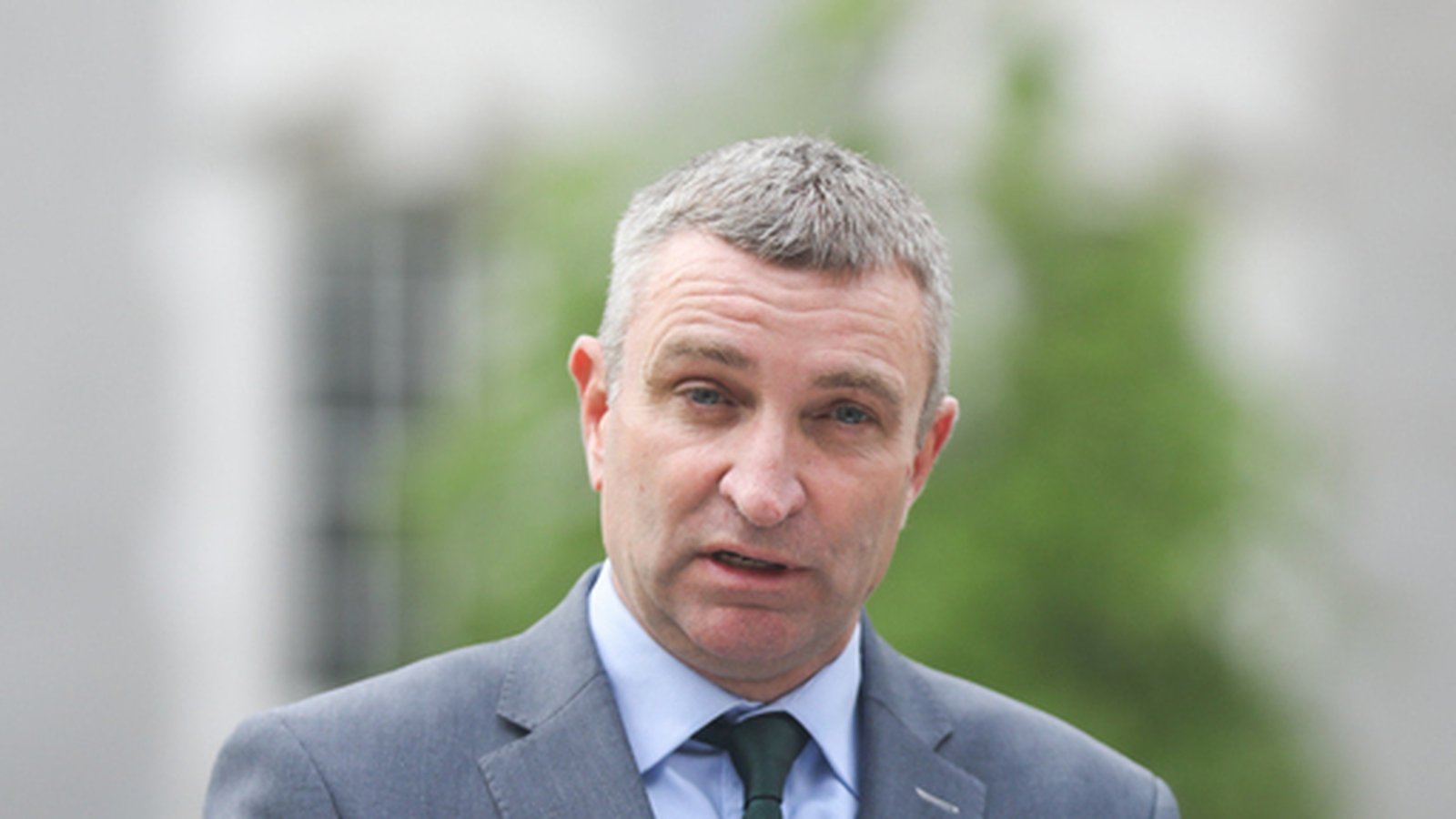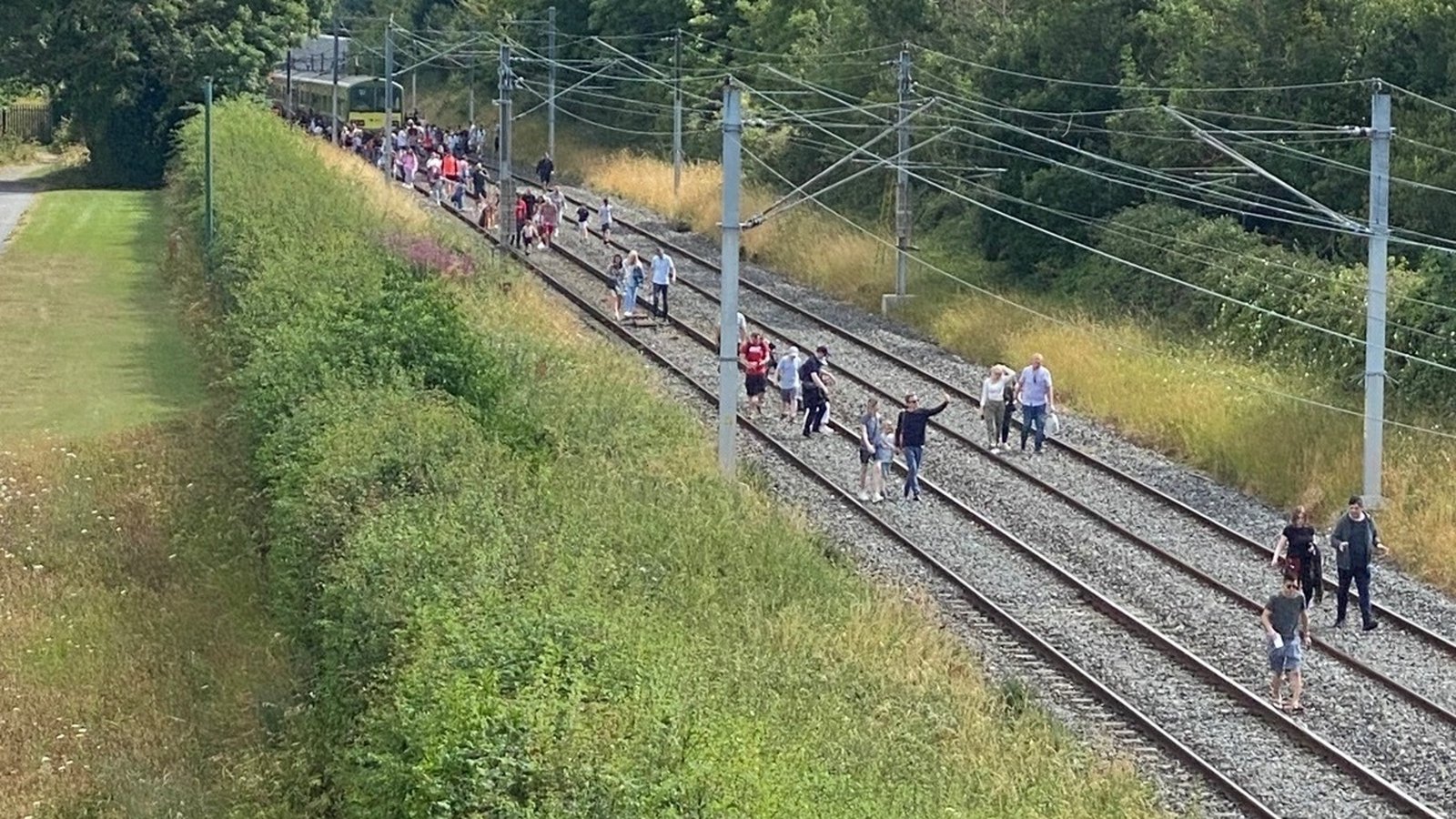‘Day of shame’ as Troubles legacy rules take effect
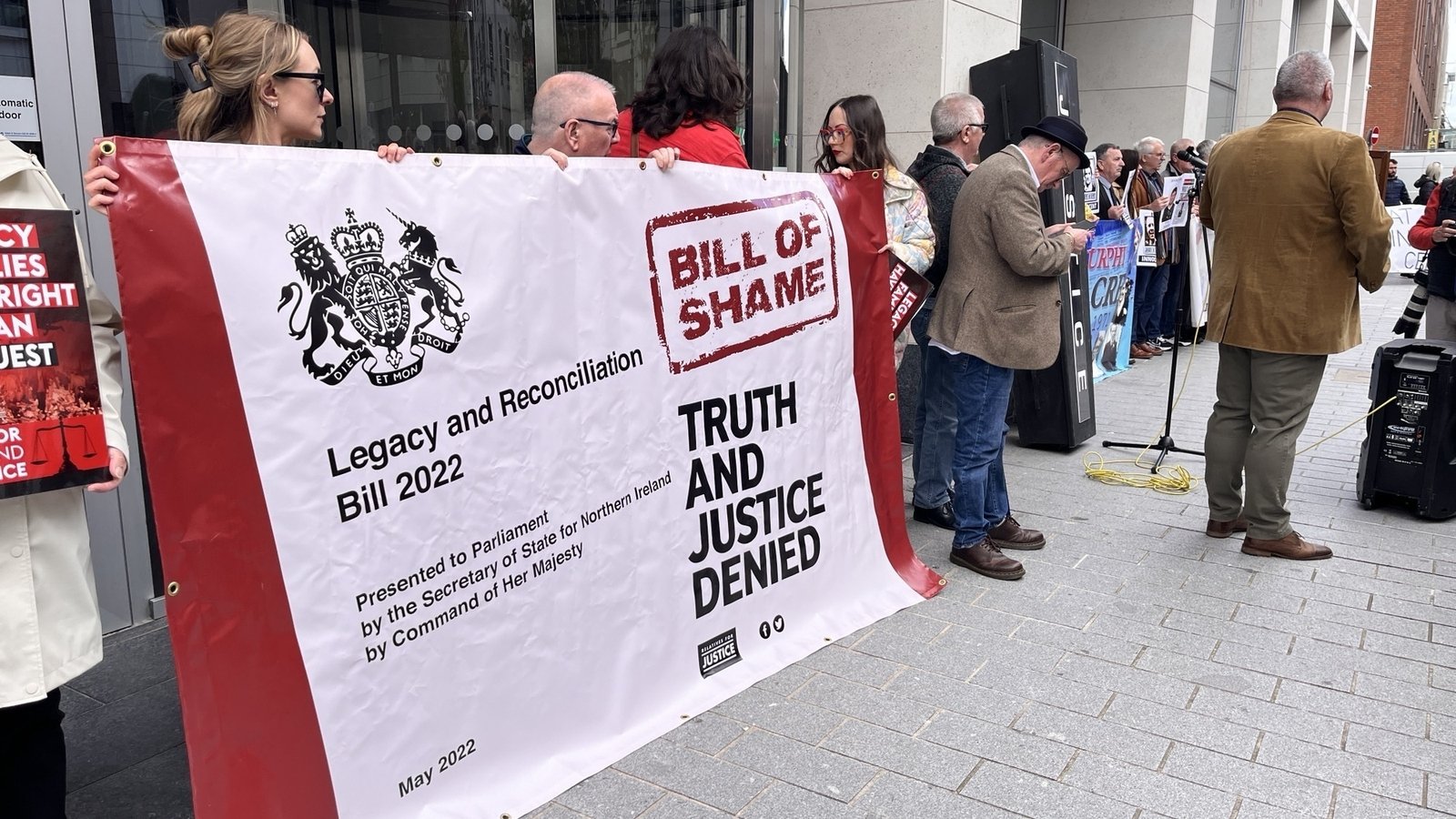
Families of victims of the Troubles have said the introduction of the UK’s Legacy Act marked a “day of shame” as they protested outside the Northern Ireland Office in Belfast.
New legacy rules take effect today in Northern Ireland that prevent access to the courts.
A total of 38 legacy inquests, covering more than 70 killings, are being stopped due to the new rules.
There will be no new civil cases, no police ombudsman legacy investigations and no further PSNI investigations into legacy killings.
Instead, all cases will move into a new independent commission established under the UK legislation.
Northern Secretary Chris Heaton-Harris welcomed the coming into force of the new arrangements.
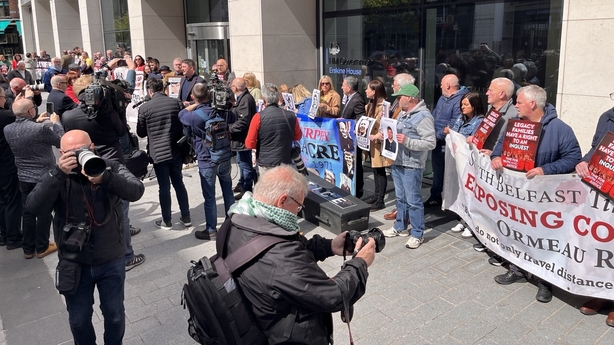
North Belfast MP John Finucane, whose solicitor father Patrick was murdered by loyalists who were also state agents, was among those protesting and said it was a “day of shame”.
He said the act was about “self-preservation” by the state which wished to cover up its role in the Troubles.
“This is a sham, a delay tactic, an attempt to tell families that they do not deserve truth or justice.”
He said it would not be tolerated.
Daman Brown, whose grandfather Sean Brown was abducted and murdered by loyalists in 1997, also addressed the crowd in Belfast.
He was the chairman of Bellaghy Wolfe Tones GAA club and was locking up the clubhouse when he was kidnapped and shot.
Mr Brown’s inquest was shut down when the coroner ruled they could not accommodate sensitive intelligence in open court.
The coroner wrote to the Northern Secretary recommending a public inquiry.
That has been resisted by the UK government which has instead challenged a decision to release a gist of the sensitive information to the inquest.
It showed that state agents had been involved in the murder.
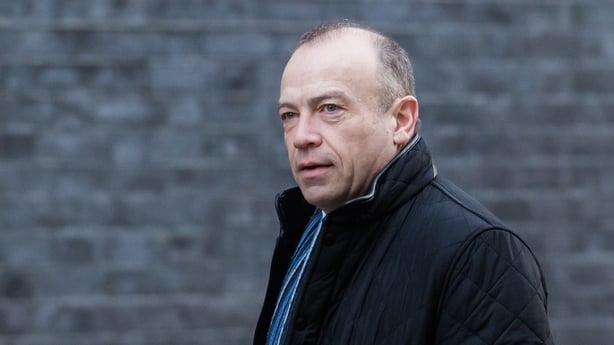
The Independent Commission on Reconciliation and Information Recovery (ICRIR) will offer families who approach it, a narrative account of what happened to their loved ones.
There is the possibility of criminal investigations where sufficient evidence can be found.
Mr Heaton-Harris said the establishing of the commission was “something that has eluded successive governments since 1998”.
“That is, delivering robust and effective mechanisms for addressing the legacy of the past, and providing more information and answers to families,” he added.
But critics claim the move to end access to the courts is a cynical one by the British authorities to prevent prosecution of its army veterans and limit the costs of legacy litigation.
Amnesty International said the government should be ashamed of the approach it had taken and that today is a “cliff edge for truth, justice and accountability” for victims of the Troubles.
“The Troubles Act first of May guillotine for judicial processes has acted as an incentive for the State to frustrate legal proceedings and continue to grossly fail victims,” said its Northern Ireland deputy director Gráinne Teggart.
She said people were determined it would not be allowed to stand.
Read more: Key questions about new Troubles law
Speaking to RTÉ’s Today with Claire Byrne, Ms Teggart said the trauma of victims had been perpetuated by new legacy laws.
She said they simply wanted the truth of what happened to their loved ones and some measure of accountability, but they had been betrayed by an act that was designed to put perpetrators of serious crimes above the law and beyond accountability.
“There are some 35, 36 inquests covering more than 70 killings that now will not continue,” she said.
“There’s more than 330 police ombudsman cases that will not be investigated by that office.”
Ms Teggart said many victims were holding to the UK’s Labour party pledge to repeal the legislation if they are in government after the general election.
She said the families did not have time on their side, adding that many had been fighting for decades and needed swift action.
“We would hope that the European Court of Human Rights will treat this case with the urgency that it deserves,” she said.
The Irish Government is challenging the case in the European Court of Human Rights.
Frustration at move
The family of Paul ‘Topper’ Thompson, shot dead by loyalists in 1994, have seen the UK government go to court to prevent the release of sensitive information at his inquest.
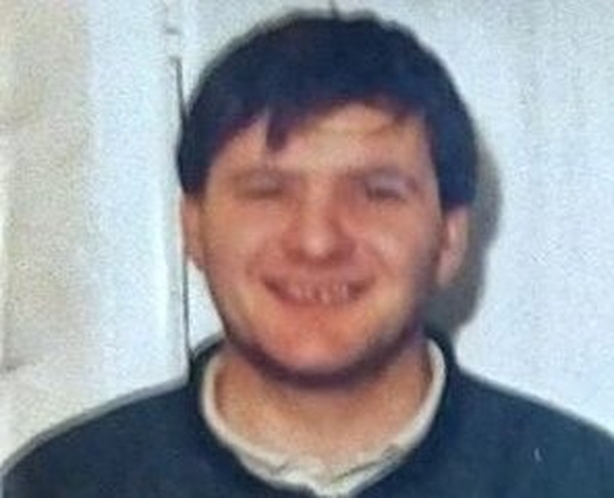
It ultimately failed, but delays caused by the challenges meant the inquest ran out of time and could not be concluded before today’s deadline.
Mr Thompson’s brother Eugene has vowed to continue his fight to establish the background to his brother’s murder.
“I’ve been doing this for 30 years and all of a sudden they’re going to say to me, we’re just going to draw a line under 30 years of your life,” he said.
“My mother died doing this and it’s unacceptable what they’re doing. They’ve dragged it out and dragged it out for 30 years.”
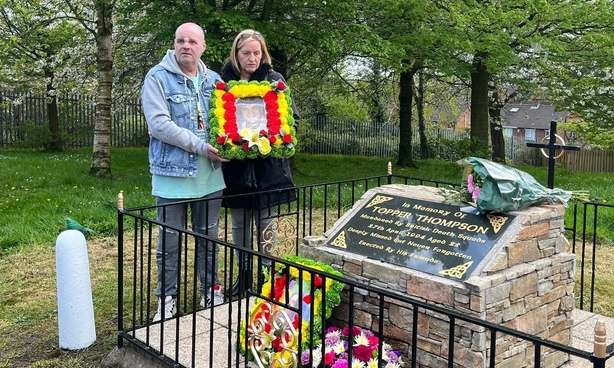
Peter Sheridan, a former senior policeman is now a leading figure in the ICRIR.
He accepts that people are cynical about the new structures but hopes to win them around by successfully answering questions some families have about the murder of their loved ones.
“I think the only way that I’ll be able to change that is by results, outcomes for families and survivors who come to us.
“I’ll do my best to recover whatever information they require, that helps them deal with that past.”
‘Innocent victims not going to get justice’
Mary McCurrie says she will engage with the new commission, but does not have any confidence it will deliver for her.
Her father Jimmy McCurrie was shot dead along with another man by the IRA in east Belfast in June 1970.
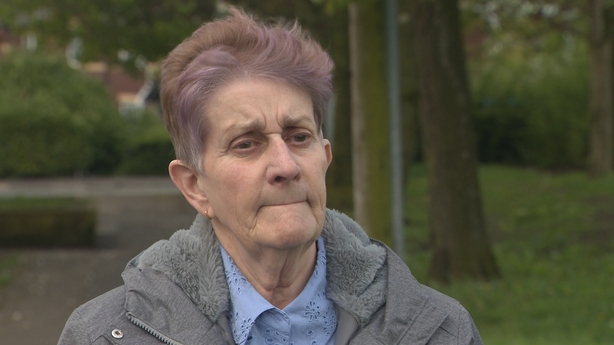
Many others were wounded in a night of violence around St Matthew’s Church in the Short Strand where the IRA had taken up positions.
She rejects accounts of a gun battle in the area at the time her father was murdered. She says he was hit hours beforehand.
She says there’s no incentive for former paramilitaries to tell the truth about what they did.
“The IRA is never, never, never going to admit what they did, what they started,” she said.
“Innocent victims – I hate this word victims – but we’re not going to get justice.
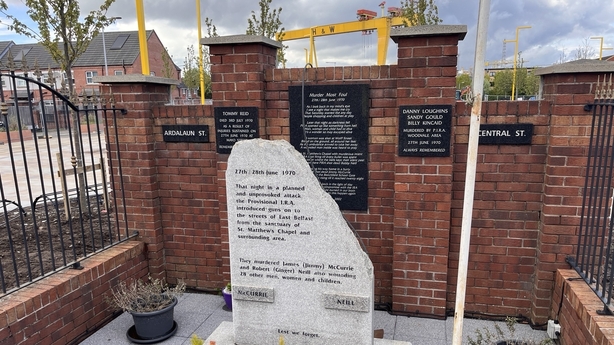
“But we’re the gift that keeps on giving because now we have another inquiry team set up, all on film star wages, all on the backs of what we went through.
“So no, we’re never going to get justice. And all those perpetrators , all those IRA gunmen when they die, that’s the only justice they will face.
“And it’ll not be in this world. It’ll be in the next.”


